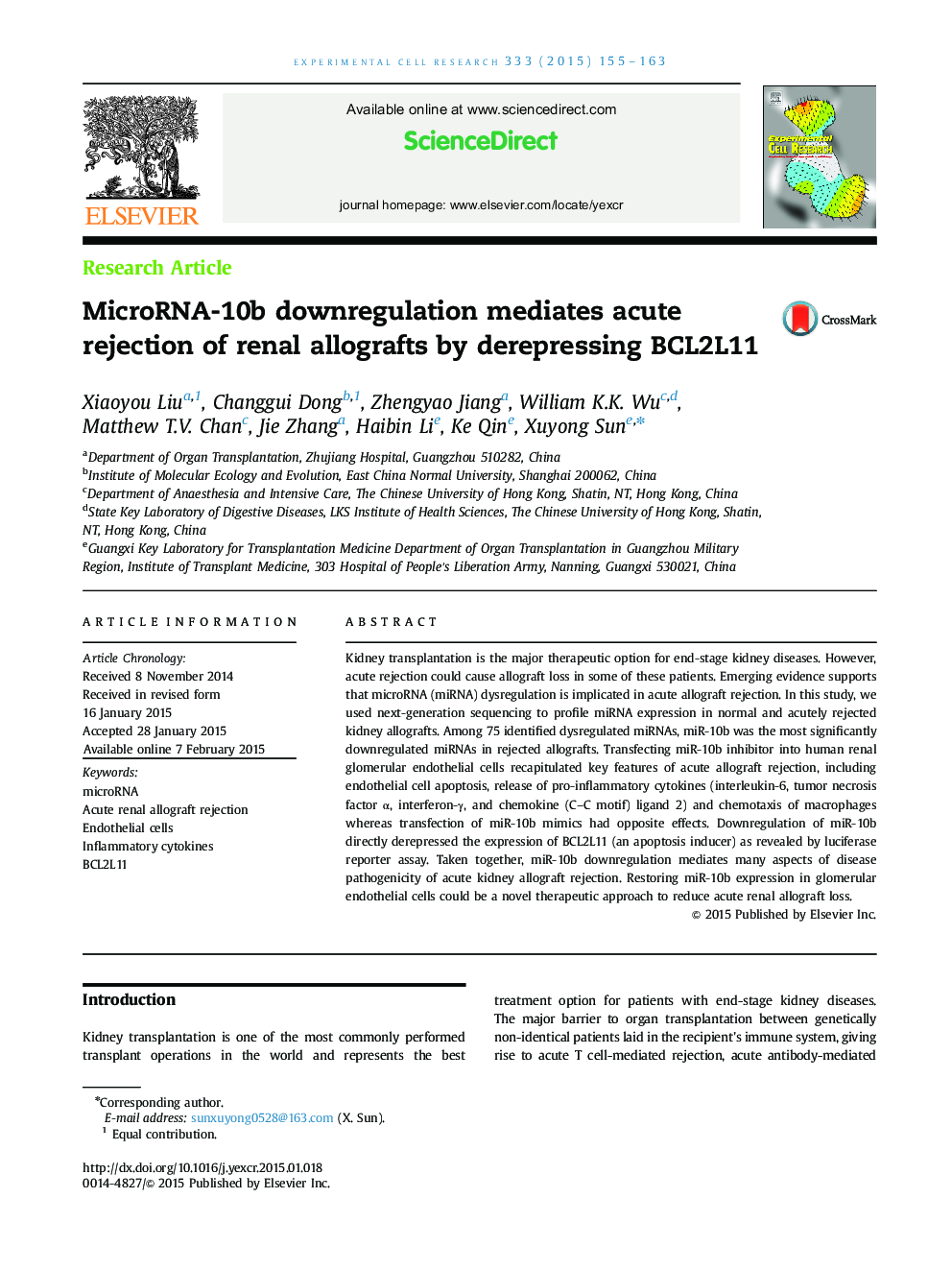| Article ID | Journal | Published Year | Pages | File Type |
|---|---|---|---|---|
| 10903790 | Experimental Cell Research | 2015 | 9 Pages |
Abstract
Kidney transplantation is the major therapeutic option for end-stage kidney diseases. However, acute rejection could cause allograft loss in some of these patients. Emerging evidence supports that microRNA (miRNA) dysregulation is implicated in acute allograft rejection. In this study, we used next-generation sequencing to profile miRNA expression in normal and acutely rejected kidney allografts. Among 75 identified dysregulated miRNAs, miR-10b was the most significantly downregulated miRNAs in rejected allografts. Transfecting miR-10b inhibitor into human renal glomerular endothelial cells recapitulated key features of acute allograft rejection, including endothelial cell apoptosis, release of pro-inflammatory cytokines (interleukin-6, tumor necrosis factor α, interferon-γ, and chemokine (C-C motif) ligand 2) and chemotaxis of macrophages whereas transfection of miR-10b mimics had opposite effects. Downregulation of miR-10b directly derepressed the expression of BCL2L11 (an apoptosis inducer) as revealed by luciferase reporter assay. Taken together, miR-10b downregulation mediates many aspects of disease pathogenicity of acute kidney allograft rejection. Restoring miR-10b expression in glomerular endothelial cells could be a novel therapeutic approach to reduce acute renal allograft loss.
Related Topics
Life Sciences
Biochemistry, Genetics and Molecular Biology
Cancer Research
Authors
Xiaoyou Liu, Changgui Dong, Zhengyao Jiang, William K.K. Wu, Matthew T.V. Chan, Jie Zhang, Haibin Li, Ke Qin, Xuyong Sun,
